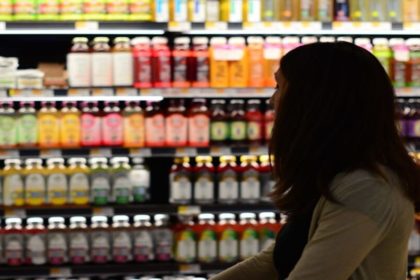
Four consumers — three underage — filed a lawsuit alleging Tribucha Inc. misled them into buying non-alcoholic kombucha that contains twice the alcohol permitted for non-alcoholic beverages.
The 30-page class action lawsuit contends Tribucha has been sold to “unsuspecting children, pregnant women, persons suffering with alcohol dependence issues, and a host of other people for whom alcoholic consumption may pose a grave and immediate safety and/or health risk.” The lawsuit says the North Carolina-based brand has a small disclaimer on the label stating that Tribucha “contains a trace amount of alcohol,” but an investigation proved otherwise. Plaintiffs used a lab accredited by the Alcohol and Tobacco Tax and Trade Bureau (TTB) to test the kombucha and found it is over 0.5% alcohol by volume, which classifies it as alcoholic.
The complaint continues: “Because Tribucha Kombucha does not include any warnings concerning the significant presence of alcohol, consumers, including Plaintiffs, are led to believe that the products are safe to consume when driving a car, operating machinery, and taking with potentially a deadly cocktail of incompatible medications.”
In 2010, Whole Foods and other retailers pulled kombucha off shelves as the TTB investigated whether alcohol levels in kombucha were higher than what was printed on the label. And since then, consumers — and even other brands — have filed lawsuits against various kombucha brands, alleging alcohol levels higher than indicated.
Kombucha can keep fermenting after it’s made, as the yeasts continue to eat sugars. Under current law, if kombucha leaves a processing facility at 0.4% ABV, but increases to over 0.5% by the time it’s placed on grocery store shelves, the brewer would have to pay federal alcohol taxes like a beer brand.
Kombucha producers fear constant repercussions from this law, says Hannah Crum, co-founder and president of Kombucha Brewers International (KBI), the trade organization for kombucha brewers.
Earlier this year, South Carolina’s Department of Revenue (DOR) categorized all kombuchas as alcoholic beverages. The state’s regulations set a maximum alcohol content for beverages but no minimum, so any fermented beverage with any alcohol content would be considered alcoholic. Since kombucha fermentation produces a trace amount of alcohol, a brewer would need to apply for a state alcohol license, and kombucha could not be sold to anyone under the age of 21. It contradicted the U.S. legal definition of an alcoholic beverage.
After kombucha industry leaders contacted the state’s DOR and the South Carolina Retail Association (SCRA) to share advice and resources, the regulation was amended to exempt kombucha. KBI’s leadership and legal counsel, along with producers Buchi Kombucha, GT’s Synergy Kombucha, Health Ade, Humm and Brew Dr. were involved.
Pending in Congress is the KOMBUCHA Act, legislation that would make kombucha beverages exempt from excise taxes intended for alcoholic beverages. The act proposes to raise the alcohol by volume (ABV) threshold for kombucha from its current level of 0.5% to 1.25%.
Reads a statement from KBI on the act: “These laws were never intended to make kombucha subject to taxes designated for beer. Passing the KOMBUCHA Act under the next appropriations bill will relieve this unnecessary burden on kombucha brewers. Only kombucha above that level (1.25%) will be subject to federal excise taxes when this Act becomes law.”
KBI has actively lobbied for the bill’s passage. Big kombucha brands (GT’s and Health-Ade) have actively supported the bill.
